How the Pandemic Changes City Life: Turkistan City Example?
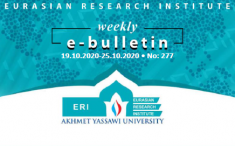
The COVID-19 infection, which started to spread in many countries of the world in early 2020, caused the World Health Organization (WHO) to declare the coronavirus as a global pandemic. The rapid spread of the pandemic around the world caused the closing of the borders between countries, the weakening of […]
Iran-China Relations within the Framework of A Possible New 25-Year Agreement
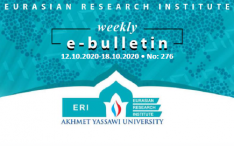
Iran’s Foreign Minister Mohammad Javad Zarif announced in July 2020 that they were negotiating on a deal with China that represented as 25-year strategic agreement. Although the details of this agreement is not disclosed to public but according to news circulating in media this deal includes mainly economic and energy […]
Potential Consequences of the China-India Border Dispute
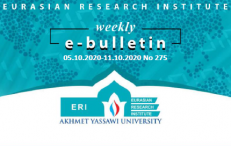
The border dispute that started on May 5, 2020, along the Line of Actual Control (LAC) on the border of China and India, the two most populous countries in the world, cause the existing tensions in Beijing-New Delhi relations to increase again. In particular, on June 15, 2020, a clash […]
International University Ranking Systems
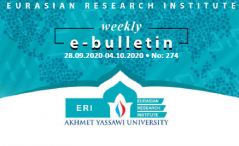
In the international Quacquarelli Symonds (QS) World University Rankings 2021, al-Farabi Kazakh National University rose to the 165th position right after the British University of Exeter and ahead of the American Rochester University and Taiwan’s National Tsing Hua University. This fact can be regarded as a significant success for the […]
Analysis of Bilateral Trade between Kazakhstan and Uzbekistan
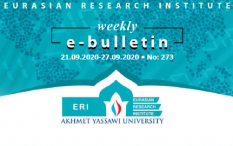
International trade is one of the important factors, which contribute to economic growth, diversifies economies, reduces poverty and stimulates development. Some countries prioritize export promotion while others implement import substitution policies. A country’s openness is a key indicator, determining its competitiveness. Uzbekistan, the largest country in Central Asia in terms […]
Ethnic Diversity Change in Kazakhstan during 2010-2020
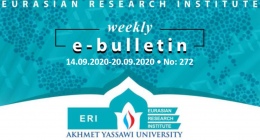
Kazakhstan, inhabited by more than 120 ethnic groups, is the most ethnically diverse country among the post-Soviet states. Its polyethnicity is the result of the complicated historical events and the legacy inherited from the USSR. Kazakhstan’s total population has recently reached 18,631,779 people, which is 14.9%, or 2,428,505 people, more […]
Geopolitics versus Technology: The Case of Huawei
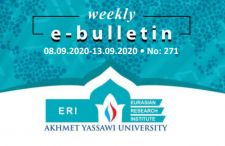
During the traditional Munich Security Conference in February 2020, the U.S. delegation widely publicized the security risk arising from the Chinese telecommunications company Huawei’s 5G technology. In addition, the enduring global campaign of the United States to boycott Huawei during the last three years has been widely discussed at almost […]
Kazakh Diaspora in Iran and the Nurly Kosh Program
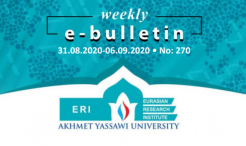
The Kazakh diasporas in the world were formed as a result of many historical events. Throughout the history of Kazakhstan, Kazakhs left their homeland for other countries only in exceptional circumstances – as a result of political, economic, and religious oppression, rebellions and wars, genocide and famine, particularly, in the […]
Evaluation of the New China-Kyrgyzstan-Uzbekistan Transport Corridor
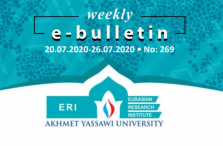
While transportation services are experiencing enormous difficulties all over the world due to the coronavirus pandemic, China opened a new transport corridor to Uzbekistan through Kyrgyzstan. On June 5, 2020, the train loaded with cargo containers departed from the city of Lanzhou, the capital of the Gansu province, to the […]
Historical and Intellectual Basis of International Student Mobility
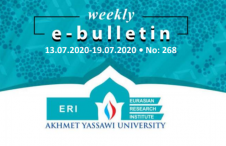
Traveling abroad for education and training purposes is the result of the internationalization of education, in other words, the spread of international educational activities. Even though the history of the internationalization of education within the scope of edification and missionary activities dates back to ancient times, from the methodological standpoint, […]
